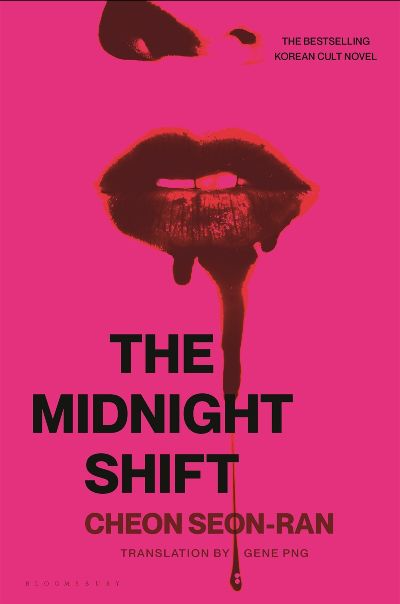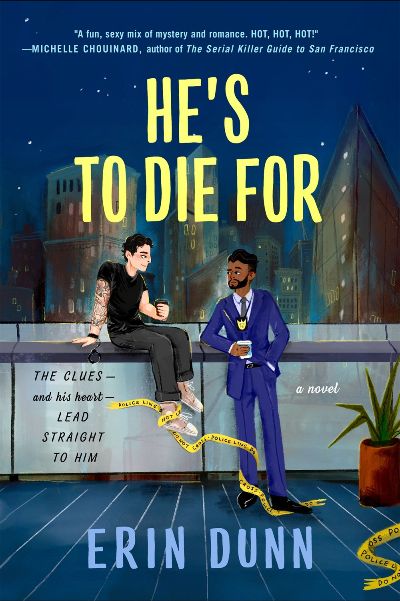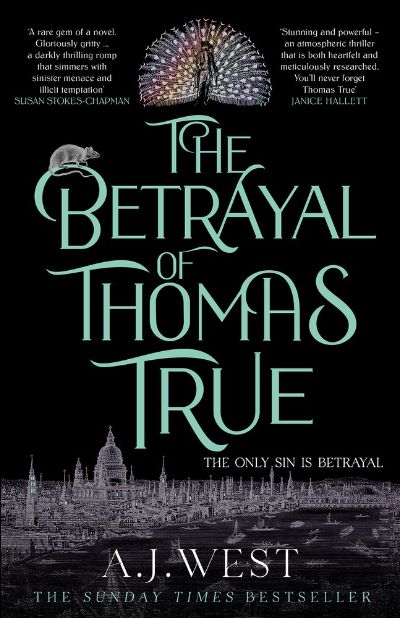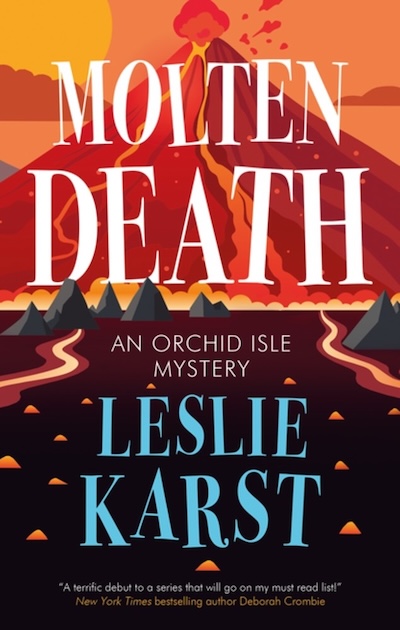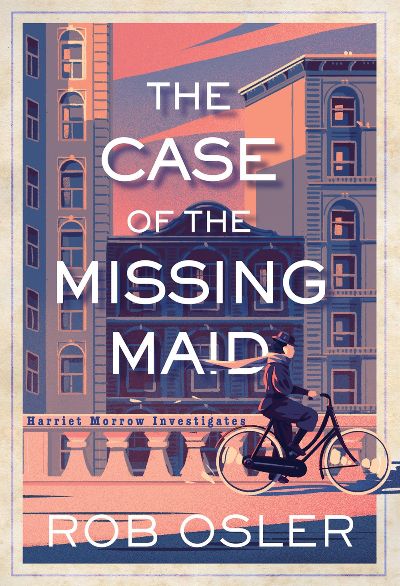Not a mystery, but plenty mystery-ish, this grand mixup of history, romance, time travel, St. George and the Dragon, Edward I, and, of course, love, is something to be savored, read in big gulps, and given over to the occasional tear. George’s mundane, twenty-first century life (crabby ex-boyfriend, job as dog walker, spiders ruling his apartment) leads to one thing: stress. Until he falls through Earth, landing not far from home, Greenwich Park, but far away in time (1300). But all isn’t so rosy; most of his fellow residents are all too eager to give George a beating, starve him, and stare at his self-drying Reebok shorts. But things change: George meets up with the charming Simon, and together they create a normal, modest life. Until George is summoned to meet the King and a dragon to boot. A lovely meditation on love and the struggles therein, this is a book readers will enjoy returning to again and again.
LGBTQ+
In this Korean bestseller, police detective Suyeon is called to the scene of the fourth suicide of an elderly patient at a crumbling hospital in a deserted part of Incheon. Her boss believes the deaths, spurred perhaps by pervasive depression and loneliness, are coincidental and sees no point in investigating further, especially since their families had abandoned the dead. But Suyeon thinks something is off. All four victims, who suffered from dementia, jumped from the hospital’s sixth floor, but very little blood was found at the spots where they landed. Returning to the hospital later that evening, Suyeon encounters a mysterious Korean-French woman named Violette, who tells her, “A vampire did it.” A skeptical Suyeon angrily dismisses Violette until the autopsy of a fifth suicide reveals two puncture holes in the victim’s neck and the body drained of blood. Claiming to be a vampire hunter, Violette explains to Suyeon that someone at the hospital is helping a vampire target his next victims. As Suyeon seeks to identify that particular nurse, the narrative shifts back to 1983 France, when a teenage Violette, adopted by loving French parents but feeling isolated and lonely because of her Koreanness, begins a strange, intense, almost Sapphic friendship with the enigmatic, barefooted Lily. Skillfully translated (but a glossary of Korean terms would have been helpful), Cheon’s novel is more than a queer paranormal mystery (the inconsistent vampire elements are its weakest parts); instead, it’s an eerie and bleak portrait of societal loneliness, isolation, and marginalization.
Have you ever noticed that vampires (not to mention werewolves, elves, and others) always get the short end of the stick? Take Arthur and his husband, Salvatore (Sal), for example. Two vampires in love, they have recently opened a bed & breakfast in rural Oregon. Life is sweet, but while vampires are sometimes accepted, there are plenty of not-so-paranormal-friendly attitudes to go around, and much of their time is devoted to educating their new neighbors (garlic is O.K., they don’t bite—really!—and they go out in the sun, but use plenty of sunblock not because of a reaction, but to stay young looking). So when the mayor is found dead in their garden, with two puncture rooms in his neck, Arthur and Sal end up accused of the mayor’s murder, to the point where Sal is jailed. How will the two of them—along with a few friends—manage to find the real murderer, exonerating themselves? A pleasure to read from beginning to end, with plenty of humor, Dead & Breakfast should find an audience from young adults through retirees.
Our favorite otherworldly investigators, Mossa and Pleiti, Jupiter-residing gay gals with a whole lot of know-how, are back. Or at least Pleiti is back, having been called up to help a good friend’s cousin, Villette, who is about to undergo her donfense, a sort of doctoral defense. Reluctantly, Pleiti agrees, despite the lengthy trip out to Stortellen University, located at the furthest reaches of the planet. But there are problems. Number one is that Villette is being accused of plagiarism—a false accusation but hard to shake. Problem number two is the absence of Sherlock-like Mossa, who is a no-show, leaving Pleiti alone to keep Villette safe while missing terribly her affectionate relationship. Thankfully, this is a short novel, whereas the earlier works (The Imposition of Unnecessary Obstacles, The Mimicking of Known Successes) were novellas. This gives Older some room to play, including in the bond between Pleiti and Mossa and the wonderful use of language (since the early settlers, after all, spoke a breadth of languages). Don’t be lazy, look the non-English words up; it’s half the fun. A unique series that just keeps getting better.
What the world needs now is more LGBTQIA+ romantic and suspenseful fiction, and fortunately Erin Dunn’s He’s to Die For delivers just that. It’s totally head over heels when NYPD Detective Rav Trivedi (British born, Ivy League educated, Dad’s a Lord, suits are bespoke, get the picture?) can’t take his eyes off rock star Jack Vale, who is as talented a musician as he is super hot. But here’s the one flaw: Jack is the lead suspect in a murder case, and Rav is leading the investigation. Fortunately, Jack is able to clear his name, although both he and Rav remain cautious about hooking up thanks to the media onslaught, their own private natures, and the threat of violence that continues to surround them. Meanwhile the dialog snaps, the stakes are high, and the pacing pops. Give yourself a treat and get a copy of He’s to Die For, which miraculously succeeds as a romance as much as it is a suspense novel. Yes it’s early in the year, but this is already one of my favorite novels of 2025.
It is 1715, and young Thomas True has managed to escape from his parent’s home, arriving in London, where he takes up residence with his uncle, a candlemaker to whom he becomes apprenticed. But that’s hardly the story. Eighteenth-century London was home to a flourishing, if risky, gay subculture, a world that seduces Thomas and that was centered around the molly houses. “Molly was a slur used for effeminate, homosexual men and the term was adopted to describe the clubs, taverns…where they met up in secret”, according to The British Newspaper Archives. And although the houses were called mollies, they attracted a range of men, from workers to aristocrats. It was a world where Thomas felt a sense of belonging, made all the more immediate with his discovery of beefy carpenter Gabriel Griffin (AKA Lotty), the doorman at Mother Clap’s Molly House. But when a young molly is found murdered, Gabriel goes in search of the rat who is exposing the men to the judicial system. Could it be someone he is close to? This book is that rare thing: both a strong historical novel that drops you into a richly rendered early 18th century and a powerful mystery that remains at the center of the book.
Kristen and Valerie, long a couple, are in Hawaii on vacation, partly to help Valerie come to terms with her brother’s death. They are staying with Isaac, who’s a surfer buddy of Leslie’s, a high-school science teacher, and a lifelong resident of the islands. During an early morning excursion to see the glowing lava rolling down the landscape, Valerie sees a boot in the lava and realizes that there is a leg attached. It is quickly consumed by the lava, and as she is the only witness, all doubt the truth of what she has seen. The police report goes nowhere, so Valerie takes on the task of finding the identity of both the victim and the killer herself. With the luck and determination of the amateur, and the friendly and open nature of Hawaiians, allowing for a few glitches, she succeeds. This is a Hawaii we seldom see in TV police dramas. The locals speak a pidgin dialect, the importance of which is carefully explained by Isaac, and the customs and practices date back centuries. The landscape is of course dramatic and beautiful and the descriptions of food and produce mouthwatering. There are recipes for some of the dishes at the end, and a glossary of words and phrases. This is billed as the first in a series, so expect more to come from our interesting characters.
A wonderful foray into turn-of-the-19th-century Chicago, with women entering the workforce, immigrants transforming the city, and the LGBTQ community tucked away in hidden nightclubs. Harriet Morrow, all of 21 years old, is the first woman hired as a detective by the prestigious Prescott Agency—a decision that pleases almost no one, neither the male detectives nor the female typing pool. But working as a detective has always been a dream of Harriet’s, and now, with her parents dead and her younger brother to support, it’s a necessity. So too are the pants she wears, giving her the freedom to comfortably bike around Chicago while also exploring her identity as a lesbian. Within an hour on the job, Harriet gets her first assignment: to find a maid who has disappeared from one of the posh mansions on Prairie Avenue—and Harriet has only a few days to locate her. It’s magical how Osler transports us around Chicago, from the the large Polish community to queer social spaces to the ritzy homes of Chicago’s elite. Harriet is a wonderful lead character, and Osler brilliantly combines his protagonist’s growth into adulthood and Chicago’s emergence as one of the nation’s largest cities. This book is asking to be the first in a series
By day, Joe is a dreary accountant in a hotel, but by night they (Stars uses “they” pronouns when mentioning Joe) are Misty Divine, one of London’s leading drag queens. Joe’s wonderful life is thanks to Lady Lady, their drag mother, who discovered them, set them up in the right sequins and heels, and pushed them out onto the stage. Until the night Joe drops by Lady Lady’s dressing room and finds her dead, sprawled out on the floor, her fingers clutching half a truffle, her mouth oozing foam. Joe’s life is upended as they and the other drag queens become the prime suspects. But unlike the other girls, Joe won’t let only the police handle the investigation, especially when it means Joe could end up behind bars. Maybe I’ll find out who did it, said a voice somewhere in the back of Joe’s mind. Maybe I could catch the killer.” So we’re off and running, despite the fears of Joe’s boyfriend, Miles, tracking down the drag queens and kings who perform at the club, and some suspicious-looking hangers on as well. There’s plenty of humor in the novel—check out a side story about a very important Judy Garland dress, as well as the continual banter between Joe and Miles—but at its essence, this is a serious work of crime fiction, wonderfully executed and leaving unanswered some important questions. It has all the makings of a great series.
The many fans of Jane Pek’s first book, The Verifiers, will be thrilled to get their hands on this new novel featuring the indomitable Claudia Lin. In this darker and tougher novel, with a robust comic streak and a deep foray into technology—featuring synths, the scary new generation of bots—Claudia can’t help but employ some espionage tropes as she investigates a corrupt matchmaking firm with the help of a corporate whistleblower. But there is plenty else to distract Claudia. Her family is falling apart at a prodigious rate; she is barely speaking to any of them. Romantic tensions are growing between Claudia and not one but two women, one of whom is the ever soignée Becks, Claudia’s one-time boss and major crush. Questions about sexual identity are sending these 20-somethings spinning in and out of the proverbial closet. While Inspector Yuan, a character created by Claudia, provides plenty of maxims throughout the text. Lots of fun, but also some real terror, in what is a brilliant depiction of New York City.


